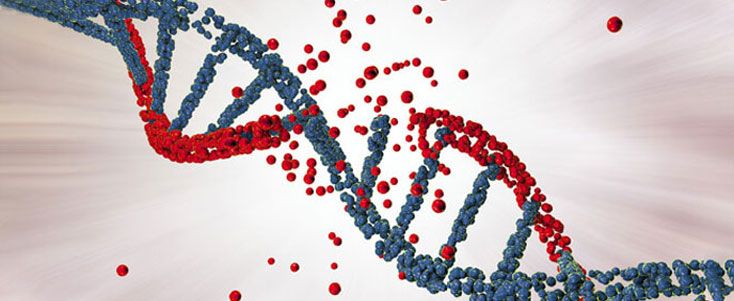Do You Know The Most Common Genetic Disorders?

A genetic disorder occurs due to change or mutation in DNA sequence of individual's genome. Genetic disorders are irreversible and difficult to treat, most of them are hereditary i.e. it passes from parents to children. With advance in scientific research and technology we have come up with Genetic Testing that helps in identification of any genetic predisposition in your DNA, hence provides early detection of disease.
What Are Common Genetic Disorders Or Genetic Conditions?
-
Cystic Fibrosis
Cystic Fibrosis is a genetic disorder that mostly affects the lungs, but also the liver, pancreas, intestine, and kidneys. This condition causes to produce sticky and thick mucus which blocks passageways and tubes of lungs and pancreas. The symptoms of cystic fibrosis vary depending upon severity of disease. Recurrent lung infections, breathlessness, excessive coughing that produces thick mucus, wheezing, poor weight gain and growth are some common symptoms of cystic fibrosis. Cystic Fibrosis is inherited in autosomal recessive form; parents are carrier with no symptoms.
-
Thalassemia
Thalassemia is inherited blood genetic disorder when body is not able to produce enough quantity of hemoglobin which is important component of red blood cells. Hemoglobin of red blood cells supplies oxygen to all parts of body, in thalassemia oxygen supply is reduced drastically leading to anemia. Mild to severe anemia is observed in patients with thalassemia, severe anemia can also result into death. There are two type of thalassemia condition - Alpha and Beta, denoting which part of hemoglobin is not produced in body. Main symptoms of thalassemia are fatigue, paleness and weakness. Thalassemia traits are passed from parents to children, affected parents may show some symptoms of anemia.
-
Sickle Cell Anemia
Sickle Cell Anemia is a genetic disorder which affects hemoglobin. Individuals with sickle cell anemia have specific hemoglobin S that changes red blood cell into sickle or crescent shape. Characteristic symptom of this condition is low number of red blood cells that results into anemia. The sickle shaped cells breakdown rapidly causing yellowing of eyes and skin. Sickled shape cells gets stiff and inflexible and stuck in small blood vessels and causes immense pain episodes. This condition is characterized from childhood itself and often affects growth of children. In severe condition, sickle shaped red blood cells elevate blood pressure and leads to heart failure.
Genetic Health Risks
Currently we witness that genetic diseases are prevailing across the globe. Do you know which are the genetic health risks that you should be worried about? Doctors are recommending various genetic tests to confirm the health risks to various disorders.
All you need to do is send a saliva sample for genetic DNA testing and the results can give you an idea about the genetic health risks you may face in future.
A few genetic conditions can be prevented with lifestyle modifications. Genetic DNA testing can be very useful to identify genetic health risk, fitness and nutrition of an individual.
Genetic Disease Prevention
"Prevention is better than cure", this principle is practiced across the world. Early detection of disease helps in early diagnosis and better treatment. Understanding the genetics behind these disorders will provide better opportunities for disease prevention.
The genetic testing is gaining importance to improve the quality of life. It identifies predisposition to various genetic health risks and helps you achieve your fitness goals.
